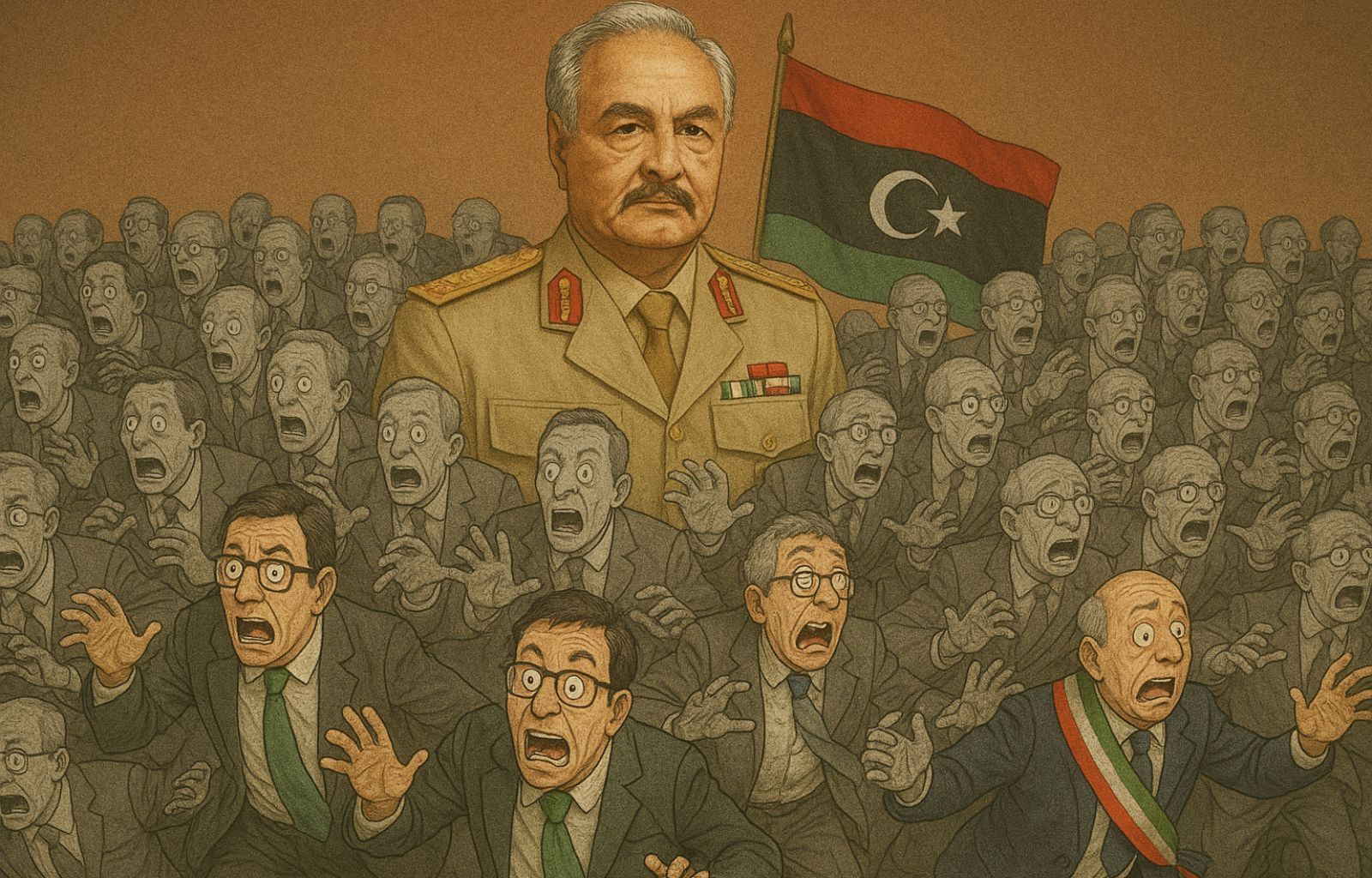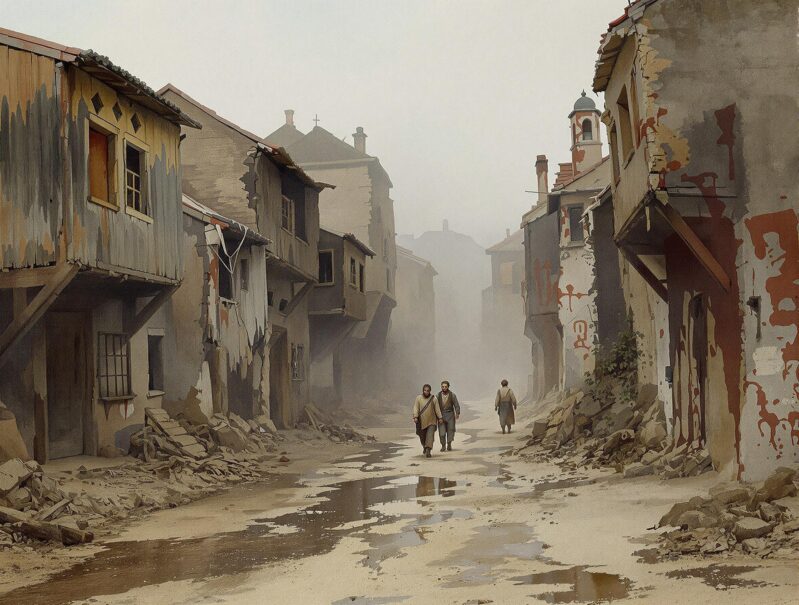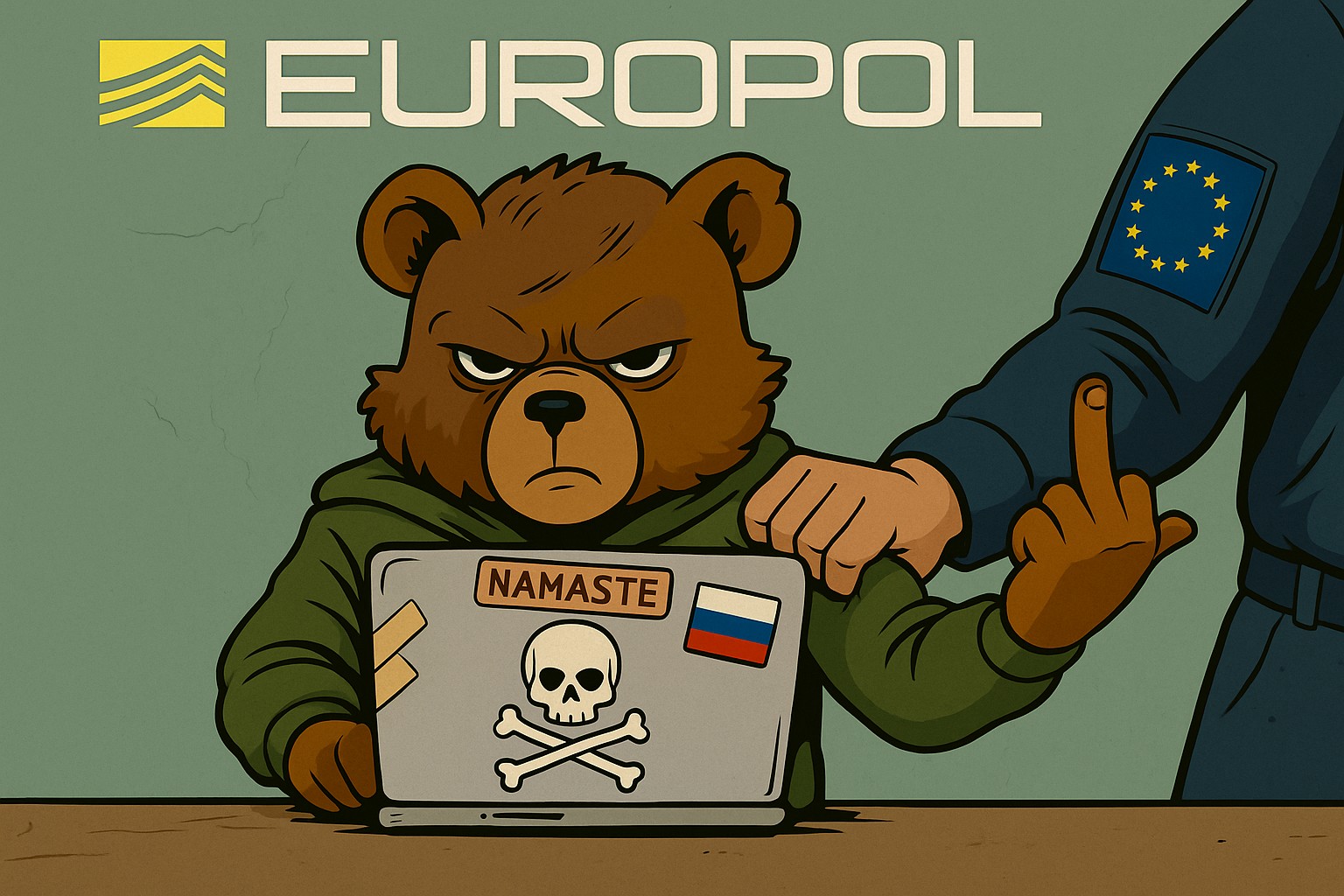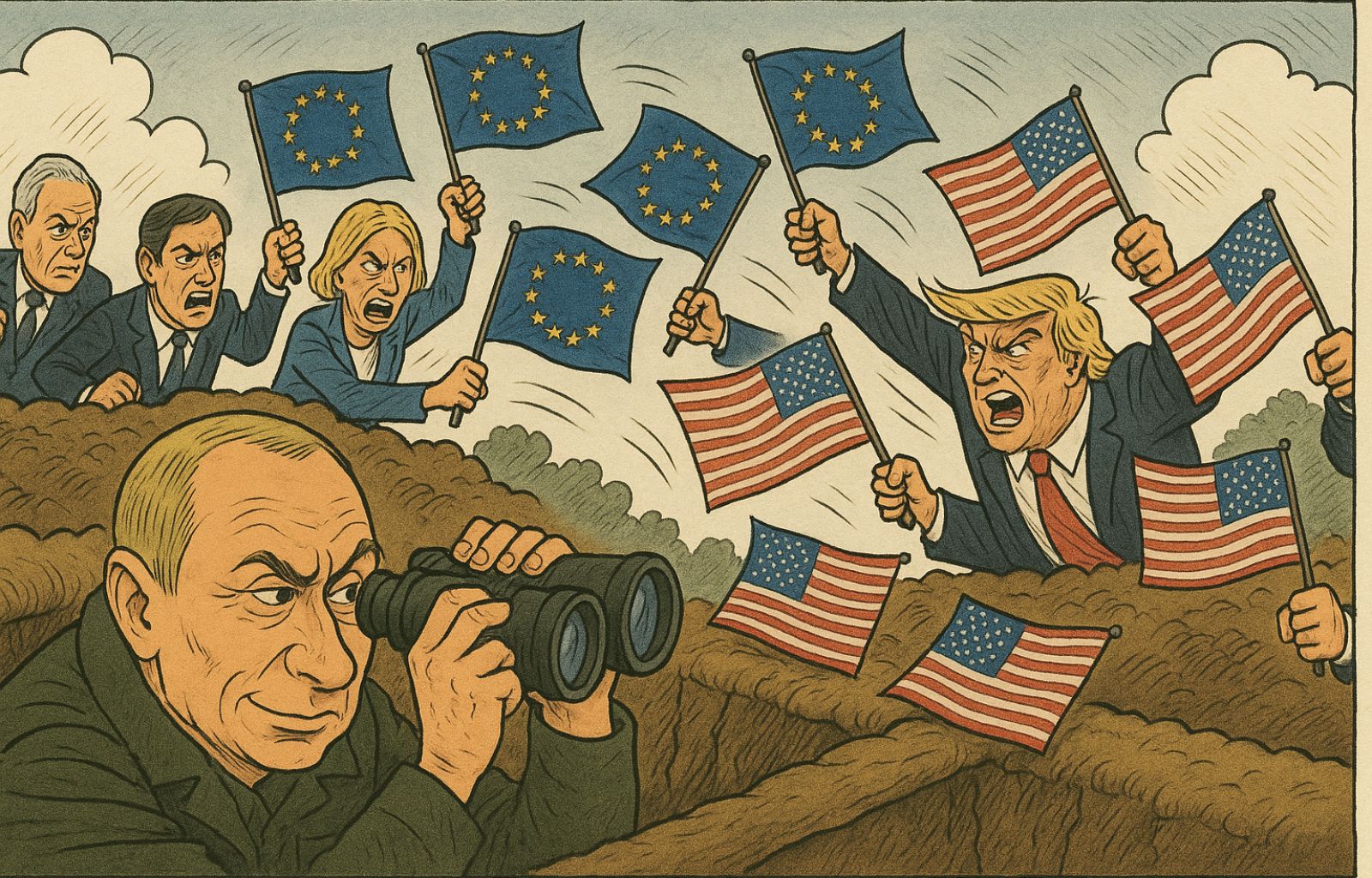Rejected in Benghazi. The blatant European strategic failure in Libya

The rejection of the European delegation at Benina airport, with ministers and commissioners forced to board a plane without meeting General Haftar, has been recounted in Italy as a diplomatic ’embarrassment’ or a management error. But to reduce the episode to the fault of an individual government, or to a technical flaw in protocol, is to fail to understand the Libyan crisis – nor Italy’s role in the Mediterranean.
Benghazi was not a minor diplomatic crisis. It was a deliberate snub, staged with awareness, that showed the world – and Libyans – the fragility of European and Italian power in Libya. Not of a single government, but of the Italian state as a whole, as a political actor with continuity, recognisability and capacity for influence.
This distinction is crucial. The problem was not born yesterday. For at least a decade, Italy has given up building an autonomous Mediterranean strategy, oscillating between immediate priorities – ENI, migration, stability – and contradictory pressures from allies. It has never converted geographical proximity into real influence. It has avoided investing in coercive and symbolic power, deluding itself that it can act as a mediator without the tools to be so.
The paradox is obvious: Italy perceives itself as a natural power in the Mediterranean, but behaves as a residual power, lacking an agenda of its own. Benghazi has thrown this in our faces. Haftar, with a gesture as cruel as it is calculated, has shown that Italy is no longer a ‘necessary’ actor.

The long-term strategic void
Those who interpret the incident as a stumble by the current government are wrong. The Benghazi crisis reveals a structural lack: theabsence of an Italian foreign policy. Not of this or that government, but of all the successive executives. It is the Italian state that has never invested in its strategic capital in the Mediterranean.
Truly understanding today’s Libya means moving beyond the simplified vision of a failed state with two rival governments. The Libya of 2025 is a fragmented political ecosystem, an emblematic case of armed post-statehood, where power is contested between armed actors, patronage networks and foreign influences.
Since the fall of Gaddafi in 2011, there has never been a true state-building process. The militias born during the civil war have developed into autonomous political structures, often more solid than the institutions created under UN auspices. The result is a patchwork of local powers capable of asserting themselves and negotiating directly with external actors.
Real power: militias, oil and mutual deterrence
The internationally recognised Government of National Unity (GUN) only nominally controls much of the territory. Its real power derives from the co-option of Tripoli’s militias, with constantly unstable balances. The killing of Commander Ghaniwa by the 444 Brigade is proof of this: the Libyan state has no monopoly on force.
This hybrid system is not an anomaly, but the result of a negotiated order: to avoid civil war by sharing resources and influence. The Libyan Central Bank, based in Tripoli, manages the proceeds of oil extracted in the east and also distributes them to rivals.
To the east, in Cyrenaica, Haftar has built a personalistic and militarised rule, tied to clan networks and the support of external actors. But his power is also precarious: like Tripoli’s, it is subject to financial flows and fluid alliances. No one can eliminate the other, and any attempt at reform is perceived as an existential threat.
Libya as a geopolitical battleground
External powers play a key role. Turkey has turned its support for the GUN into a strategic investment, gaining infrastructure, maritime agreements and political influence in return. Russia, for its part, has built military bases and maintains a stable presence with theAfrica Corps.
Egypt and the United Arab Emirates have supported Haftar for years, considering him an anti-Islamist bulwark. TheEuropean Union, on the other hand, has remained in an ambiguous and ineffective position, unable to express a shared line.
The Libya of 2025 is not only unstable: it is a geopolitical battlefield, where internal fragmentation is the lever with which external actors wield power. Any attempt to centralise power without taking these realities into account is doomed to failure.

Italian ambition without tools
Italy is both exposed and invisible. With historical ties, a crucial geographical position and direct interests, it continues to oscillate between diplomatic ambition and operational impotence. It has never built a Mediterranean doctrine, nor has it been able to combine diplomacy, economic cooperation and coercive credibility.
The Benghazi episode is the clearest example of this. Haftar imposed his agenda. He did not just reject a delegation: he told Europe ‘recognise me or leave’. The ambiguous Italian and European strategy – formally with Tripoli, but operationally with both – exploded.
Italy’s bureaucratic diplomacy, consisting of crisis tables and vague declarations, was not up to the task. On the contrary, Turkey and Russia have invested real resources. Italy has limited itself to financing the Libyan Coast Guard and protecting ENI interests, without any overall vision.
Protocol as an instrument of legitimacy
The Benghazi communiqué, signed by Prime Minister Osama Hammad, is a political manifesto, not a formality. It accuses Europe of violating Libyan sovereignty and demands equal dignity for the eastern government. In a fragmented context like Libya, diplomatic form is political substance.
The protocol agreed with Brussels envisaged a meeting with only Haftar as ‘military commander’. But thediplomatic ambush was already in place: all the ministers in Benghazi lined up for implicit legitimisation. The mission found itself without tools: either accept the photo or suffer humiliation.
In serious diplomacy, every detail must be negotiated in advance. But here, amaniacal attention to detail was lacking, replaced by a structural underestimation of context. The attempt to visit Tripoli and Benghazi on the same day only exacerbated the dispute.

Rome and Brussels without a strategy
The failure of the European mission is a reminder of the contradictions of European foreign policy. Libya has been treated as a technical dossier, while it is a political battleground. Inviting the Libyans to ‘neutral’ tables has only handed Haftar the opportunity to establish himself as an equal interlocutor.
The Libyan communiqué is not just an indictment, but a strategic challenge: with whom do we want to build the Libya of tomorrow? With Dbeibah? With Haftar? With a tribal system? The answer to this question defines our presence – or our absence – in the Mediterranean.
Diplomacy as the art of ordered conflict
Diplomacy is not good manners or institutional politeness. It is the art of establishing hierarchies, turning interests into rules, conferring or denying legitimacy. In a context like Libya, where every gesture has political value, protocol is already politics. And theItalian and European inability to manage it has resulted in delegations being stopped at the airport, mediators humiliated, propaganda given to adversaries.
The Benghazi snub is not a technical error: it is the plastic manifestation of a strategic vacuum. For years, Italy has been declaring Libya a national priority, but has never decided whom to support, with what instruments and according to what interests.
The European Union as a whole continues to treat the Mediterranean as a technical practice, while others experience it as an arena of real power. Libya risks becoming the symbol of this strategic failure.
A political change is needed, not a better protocol
To avoid this fate, a cultural shift is needed. It must be accepted that diplomacy is an orderly conflict, not an exercise in good intentions. That international legitimacy is built by negotiating real power relations. And that in a competitive Mediterranean, Italy must choose whether to be a credible partner or an irrelevant spectator.












